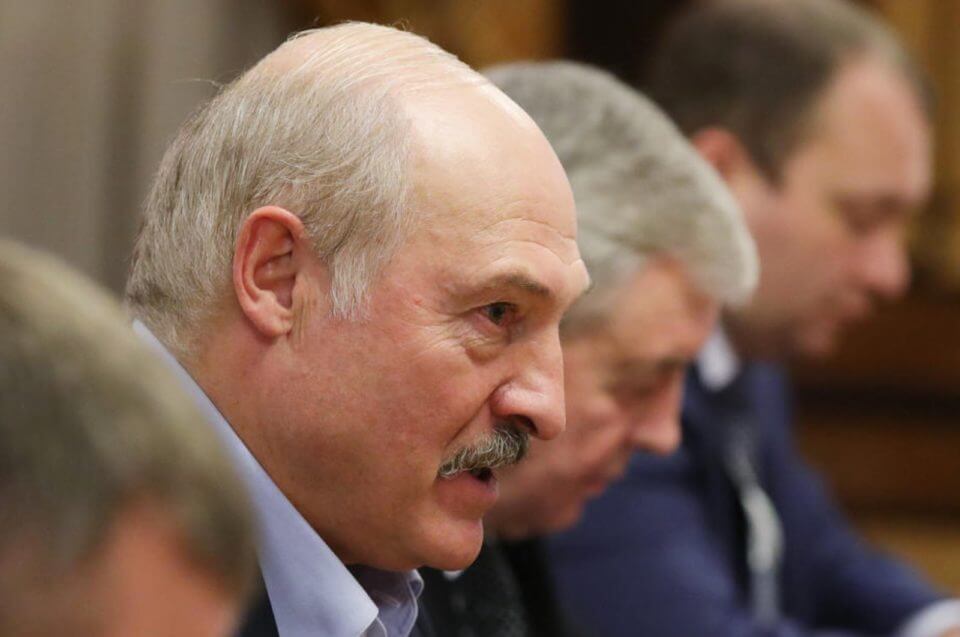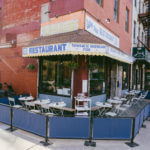
“Belarusian independence would become, however, a package of unfulfilled promises.
“The future’s in the air, I can feel it everywhere, blowing with the wind of change.”
In the early 1990’s, people around the world were united by a new popular anthem, “Wind of Change,” a song performed by the West German rock band the Scorpions. The song’s optimistic spirit conveyed the feelings permeating throughout the world after the fall of the Berlin Wall in November of 1989. More broadly than just the Berlin Wall, the “wind of change” in the air referred to the impending fall of the Soviet Union and, thus, the end of a bipolar world. Capitalism had triumphed over communism, and fifteen new countries were emerging from the former Soviet Union. One of these fifteen nations would be the modern state of Belarus, a landlocked country bordered by other former Soviet Republics, including Latvia, Ukraine, and Poland.
Belarusian independence would become, however, a package of unfulfilled promises. Since Belarus achieved independence in 1994, President Aleksandr Grigórievich Lukashenko, often described as “Europe’s last dictator,” has led the former Soviet Republic with an “iron fist.” He has “disappeared” his regime’s adversaries, while amending laws to expand his authority. For example, in a 2004 referendum, President Lukashenko pushed forward proposals to discontinue term limits for the office he holds. As such, for more than 25 years, President Lukashenko has secured control over Belarus through electoral manipulation, leading the Organization for Security and Cooperation in Europe (OSCE) to conclude that there have been no free and fair elections in Belarus since President Lukashenko took office. As a result, both the United States and European Union (EU) have imposed sanctions on President Lukashenko’s country, while also questioning Belarus’ respect for political freedoms and human rights.
With that said, the Belarusian presidential election, which is now fewer than four months away, will be a significant event for Belarus (and the region), while testing President Lukashenko and his allies’ respect for democratic values.
But then in September of 2016—after two decades of President Lukashenko’s unquestionable power—the results of Belarus’ parliamentary election suggested that an element of democracy might be returning. The election saw the victory of two opposition candidates for the first time in 20 years. This came just several months after Western powers eased many of their toughest sanctions, and a new “wind of change” permeated throughout Belarus. Sadly, though, the honeymoon did not last.
Last November, a new parliamentary election took place, and, naturally, a similar outcome of the 2016 voting exercise was expected. Unfortunately, this was not the case. This time opposition candidates failed to win a single seat out of the 110, leaving a situation where President Lukashenko would remain unchallenged through to the upcoming August, 2020 presidential election. Likely as a consequence of the majority of elections—with the exception of 2016—producing little in the way of actual political change, Belarus has been experiencing a surge in political apathy, as many Belarusians doubt their ability to enact meaningful change through voting or participating in politics.
With that said, the Belarusian presidential election, which is now fewer than four months away, will be a significant event for Belarus (and the region), while testing President Lukashenko and his allies’ respect for democratic values. However, given the 2019 results, it is unclear whether Belarus will meet the democratic standards many hope for and, as a result, change its political landscape. Otherwise, President Lukashenko will continue with business as usual, as has been largely the case since 1994.
Should that happen, countries such as the United States and organizations like the European Union will have a choice: increase sanctions in hopes of encouraging electoral reform or refrain from doing so. As much as electoral reforms would benefit the people in Belarus, imposing sanctions might have a downside: isolating Belarus to the point that it must seek closer relations with Russia.
In 1999, Russia and Belarus established an integration scheme, which included setting up shared economic and social policies, as well as plans for phasing in a shared currency and “a united parliament.” As the years passed, Russia started to move forward with the integration format, and, in 2018, Russia suggested deeper integration as a condition to continue certain economic benefits Belarus was receiving. Despite intense negotiations, a further agreement was not reached. And, as a consequence, preferential contracts of oil and gas were not renewed. Also, ties suffered between the two nations after Minsk declined to clearly support Moscow’s annexation of Crimea in 2014, with President Lukashenko referring to it as “bad precedent.”
For the EU, which in 2018 called upon Belarus to work towards “serious and comprehensive” electoral reform, it must balance this objective with thwarting Russian President Vladimir Putin’s geopolitical ambitions. As such, Belarus’ sovereignty—and existence as a state independent from Russia—is vital for regional stability. For any inclined to doubt this point, bear in mind the events surrounding the relatively recent Ukrainian crisis. Given the current issues the EU is facing—from the still-present effects of the migrant crisis to the Coronavirus (COVID-19)—it cannot afford a new confrontation in Eastern Europe. So, looking to August, we can hope for improved democracy in Belarus; however, should that fail to materialize, avoiding acting rashly and pushing Minsk into Moscow’s hands must also be firmly avoided.
Luz Paola Garcia graduated with a B.A in International Relations from Tecnológico de Monterrey. She currently works as a political consultant and as writer for Revista Ciudadania.










